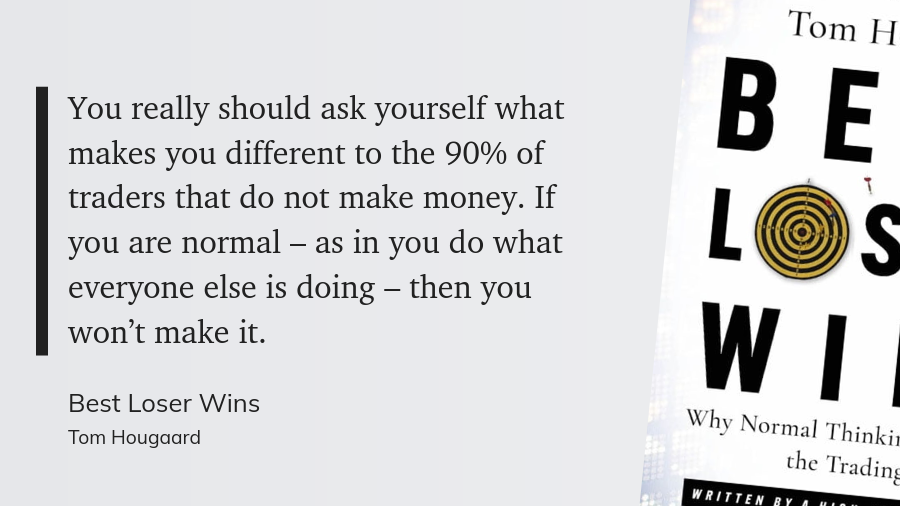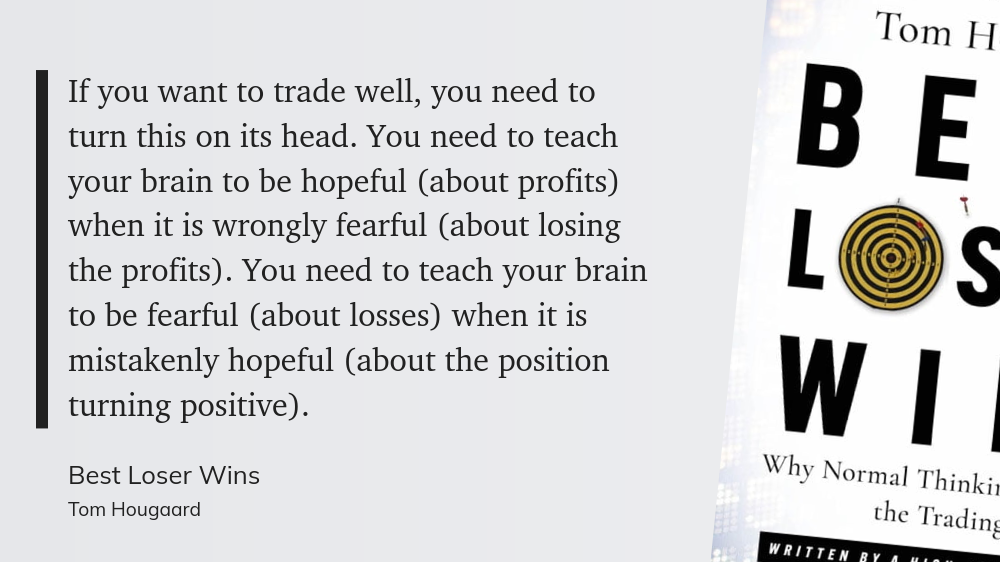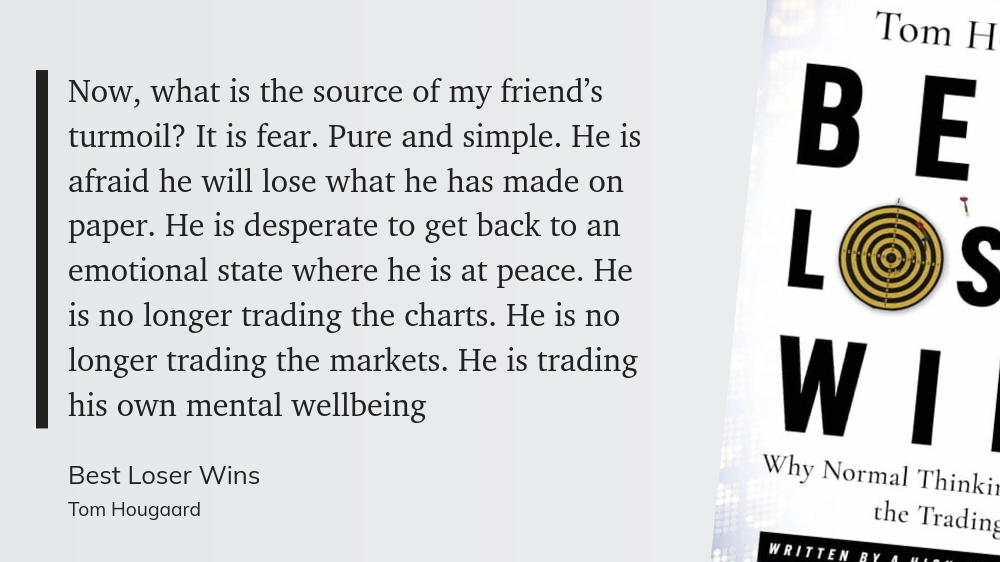My trading changes for 2024
This year looks good for a reset of my trading mindset. The transition begins now! ♻️

Howdy, everyone! During my holiday time off from work, I spent a lot of time reflecting on plenty of things from last year around work, trading, and my personal life. This is a really good thing to do every so often to reset priorities.
Best Loser Wins
I read Tom Hougaard's Best Loser Wins on the advice of another options trader and it was a real eye opener for me. This book has so much to offer for improving your trading as well as your personal life and health. Tom's goal here is to change how you think and to be comfortable with making some decisions that feel diametrically opposed to what feels like the right thing to do.
This book deals with an incredible amount of topics in very few pages, but if I was forced to boil down the book into a single quote, this would be the one:

He mentions tons of statistics around different types of traders in different regions and how the majority fail. What surprised me here is that this includes retail traders, prop traders, as well as institutional traders. Yes – even institutional traders at massive firms aren't immune from trading failures.
I mentioned earlier that he pushes you to think about taking actions while trading that feel like really bad ideas. For example, when you make a trade and it's a winner, what are your first thoughts? Before reading the book, if I went long on a stock and it went up a few percent, I'd be thinking:
- "Oh no, it's going to turn around at any moment. I better take some off to secure the profit and watch it closely."
- "I better sell the whole thing and take my winnings now. What if it goes down?"
The last thing I'd consider is adding to a winning position, but that's exactly what Tom suggests the best traders do. He talks a lot about "flipping the switch" to change how you think about trading, best summed up with this:

How many times have you made trade that begins losing money and you think: "Oh, it's cheaper now! Let's load up more long shares!" That's me right there. He argues that if we make a bet, then lose, then throw more money onto a bet that wasn't good, it doesn't make any sense. If we make a winning bet, we did something right. We should put pressure on that bet since we made a good choice.
This sounds easy at first glance, but it's not.
He also makes good points about how much brokerages have done to make trading easier and more profitable. We get up to the second news, tons of indicators, screeners, scanners, fundamental analysis tools, and access to nearly anything in the world we want to trade. For almost all brokerages, all of this is given to us for free. If we traveled back in time to the 1980's and showed those traders what we have today, they would be completely shocked.
Even then, with all of those free tools from brokerages, the failure rate of traders has not changed. Why are the majority still failing even with this incredible basket of tools that would cost a fortune 20-30 years ago? It's the mindset.
He shares lots of anecdotes from his past as well, including a story about a friend who continued to lose money and blew up his account:

In summary, Tom's book is an excellent one to read to improve your trading as well as your personal life.
Further reading and viewing
Tom has lots of helpful videos for altering your trading mindset and he has some with some live trading, too. The ones that caught me by surprise and really made me think were some recordings of the late Dr. David Paul speaking about trading psychology as well as how he makes some of his trades:
I wish I had the opportunity to meet David in person. His speaking style is so easy to follow and he pushes the audience to think differently through useful anecdotes and a dry sense of humor. 😉
What am I changing?
I'm working through Tom's "flip the switch" guidance in the book and trying to think about winning and losing trades differently. Throwing money into winning trades and pulling back quickly from losing trades still feels challenging but I'm hoping it becomes easier over time.
I'm also drastically cutting down on the amount of information I take in daily to make my trades. Nearly every trading book I've ever read says that everything you need to know about the market is found within the charts. Charts have price and volume – that's it. As Fred McAllen said: "The only thing in the market that won't lie to you is the chart." Lucky for us, charts are free! 👏
I'm pulling back to focus heavily on price and volume. That means dropping a lot of the services I was using, including Barchart, Volland, and Volume Leaders. All of these services are very good and run by helpful people, but I'm going through this reset and that's too much information for me right now.
In future posts here, you'll see a much heavier focus on stock charts and whether volume confirms the trend in price movement. I'll be dropping my posts around vanna, gamma, and institutional trading levels. That doesn't mean they aren't useful for other traders, but they aren't useful for me right now.
I'm still planning to target short theta trades in the 30-60 DTE range at sensible levels (usually 0.16-0.22 delta), but I'll focus on a shorter list of tickers so I can better analyze their charts. I hope you'll stick with me as I make this transition!
Thanks again for reading and good luck in your trading in 2024! 🍀


Discussion